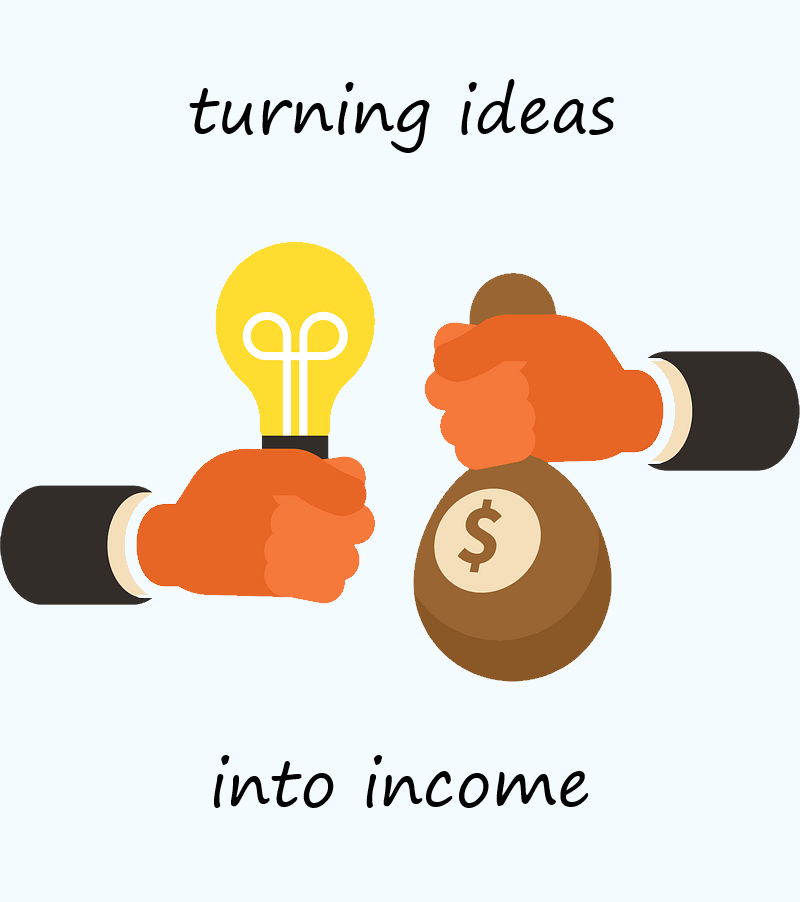The Challenge of Turning an Idea into an Income

Tech product engineers consider themselves to be the geniuses of the 21st century. They have disrupted the world with both hardware and cutting-edge software, and are still working on some cool stuff that you probably have not heard about. Programmers claim that they rule the world and that the solution to every problem facing the world is just a few lines of code away. This fuels the drive to create the next tech startup with the goal of becoming a unicorn.
However, often these dreams never come to be, in some cases, leaving a very demoralized potential founder.
It always starts with a person with an idea; the next big thing. But an idea on paper does not translate into a successful venture, or as they say in Kenya, vitu kwa ground ni different (on the ground things are different). Many software developers who started a venture with a product slowly abandon their pet projects and become resellers of existing products, or go into employment. It does not take long for someone to realize that it is easier to resell a product than to build your own from scratch. Building a product is hard and painful. The worst part is that even a good engineer needs expertise in the specific niche they want to disrupt. If you are building a solution for lenders, you need to fully understand how their business runs.
What are the challenges that keep people from commercializing and making money from their products?
Your Product is not Good Enough
Not everyone can create a product, even if they are good engineers. It is as simple as reading and writing. While many people can become very knowledgeable in a language, and master all the words possible, not everyone can write a thriller story or novel. And once you have written one, marketing is the other challenge that you face. Many great books have failed to fly off the shelf because marketing was not properly done. In a different scenario, poorly written books that have little or nothing to tell can end up becoming bestsellers. Many people have invested in creating products that simply don’t work. To be fair, many products fail even great ones. However, it takes determination, skill, great talent, and sometimes chance to get a good product.
If you have a product that you want to launch, you may consider getting experienced people who can tell you whether what you are doing is nonsense or the next big idea. Mentorship is important, and people with expertise are able to identify what can work, what may work, and what will definitely never work.
Geographical Barriers
In 2012, when I was required to do a final year project, I was looking for the simplest solution that could give me an easy time and a good grade. I came up with a noise meter that could report via SMS, as well as issue alerts on excess noise depending on the set levels. After school, I tried to find a practical application for it but there was simply no market, and thus no motivation to commercialize the project. Three years later, a company was founded in the US to offer the same product. Airbnb hosts love the idea.
The problem was that the geographical location I was in did not have a market for the product. Somewhere in a different country, it would have made sense. When Google launched a Personal Safety app that detects car crashes and calls 911, I saw some people in West Africa who already had done that years earlier, but they never made news, and possibly sales.
Marketing Skills
When a friend actively sold software, he used to marvel at the great opportunity that existed in the market. He had taken time to study the market and the competition, going into detail to understand what it would take to sell. There were many competitors with inferior products to theirs, and he knew that it would be easy. It did not take long for him to realize that some of their competitors were outdoing them in sales, despite the fact that he had a superior product. Today, he still keeps up with the industry and he knows better; in some cases, the sale comes first, and the product comes second.
Marketing is key, and even if you had the cure for cancer but you cannot convince the world to use it, you are as good as without a product. Unfortunately, many people who come up with products have poor marketing skills. A partner with such skills can help.
Lack of Funds
It requires money to make money. You need to have a business idea that can bootstrap, or else you have to turn to angel investors and venture capitalists. Bootstrapping requires a product that will sell easily with minimal input so as to generate the resources that will fund further development. This is hard, and most people would require an external investment in order to push their products out there. Unfortunately, VCs and angel investors are not that easy to come by, and this is where one needs networks that can help build credibility. Most innovators find themselves limited when they start looking for funds.
It is not just the business funds that may hinder the growth of a product. One other factor to do with money is the background of the would-be entrepreneur. People who have a social safety net such as wealthy parents are able to venture into entrepreneurship more easily because there is always a fallback plan. This helps them to build a form of risk-averseness that encourages entrepreneurship, knowing that they do not risk starving to death.
Conclusion
The world is full of so many people who have great products but cannot make money out of them. It could be due to a lack of entrepreneurial skills, a lack of money to monetize their innovation or simply environmental factors such as geographical location. The best we can do for them is to provide an environment where they can try out their ideas, such as incubation hubs, and also help them to get the right partners who can help jumpstart their ventures.

